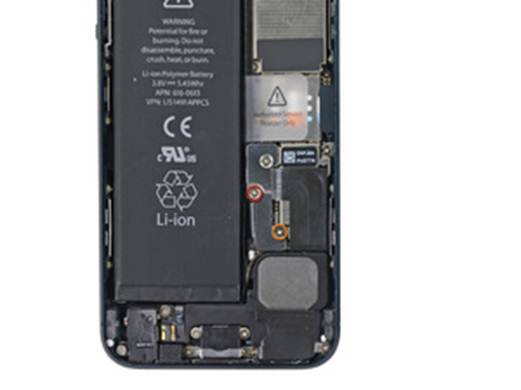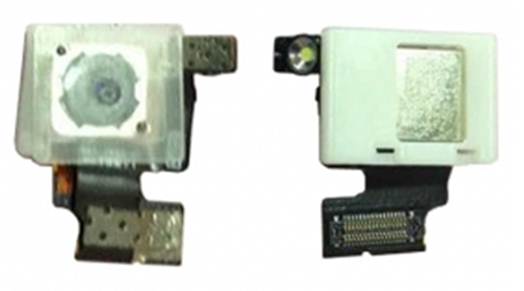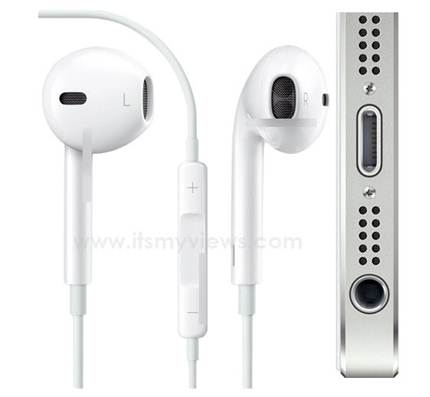Meet the iPhone 5. It’s an iPhone…
but with a twist
IT’S THE WEIGHT you notice first. Yes, it’s 18% thinner, but the iPhone 5 is also
20% lighter than the 4S, and if you’ve been using the previous model for the
past year or one of the heavier iPhones that preceded it the loss of mass is
what your hand registers as soon as you take hold of it. It’s not quite like
picking up one of those empty dummy phones in a shop not that you’d ever find
anything so naff in an Apple Store but it’s getting there.
And yet, far from being empty, this new
iPhone is packed tighter than ever with even more remarkable electronics. So
familiar does it look at first glance that there were a few raised eyebrows at
the point in the launch event when Jonathan Ive, in a prerecorded video
package, said the iPhone 5 had been ‘completely redesigned’. Completely?
Really?

Meet
the iPhone 5. It’s an iPhone… but with a twist
But to doubt this just because it’s another
flat phone with a metal edge and a similar corner radius is to forget what Ive
never would: that, as Steve Jobs put it, ‘Design is not just what it looks like
and feels like. Design is how it works.’
How an iPhone works is pretty much all of
the last hundred years of physics crammed into a matchbox or, now, a bit less
than a matchbox. ‘To achieve a design this thin,’ explained hardware chief Bob
Mansfield, who’s been designing micro-processors for 30 years, ‘we had to look
at making many of the components smaller. It took an incredible cross-collaborative
effort to do this.’
It must be frustrating for Mansfield, who’s
retiring this year (with a watching brief reporting to Tim Cook) to make way
for his lieutenant and former Raycer Graphics colleague Dan Riccio, that Apple
declines to talk about some of its greatest technical achievements. The A6
‘system on a chip’ in the iPhone 5, although based, as with all iOS devices, on
technology from Cambridge’s ARM Holdings, is the first to have been designed
in-house by Apple, and its performance is, as it’s surely only a matter of time
before the excitable Cook declares in a keynote, off the hook. Measured by the
Geekbench CPU test, not only is it more than twice as fast as the iPhone 4S or
the 2012 iPad, it’s faster than the top-end Macs Apple was making just a few
years ago, before the switch to Intel.
This is quite a blow to the conventional
wisdom that the iPhone is an underpowered mobile device that simulates broad
computing capability using clever software. We might have to get used to
shelling out our $952 not for a fancy phone that runs cute apps, but for an
enormously powerful business and entertainment system that, by the magic of
Mansfield, has some-how been shrink-rayed into a sleek, sharp enclosure as
narrow as a pencil. Perhaps that should be what we notice first.
Internals
Battery
Similar to that in the iPhone 4S, the battery is now powering a much faster
processor but by increasing the efficiency of components, Apple has kept
battery life much the same, or in some cases longer. Talk time is quoted as 8
hours, as before, but now the figure for 3G internet browsing is the same, up
from six hours. Some users in the US have reported much shorter times when
using cellular connections, particularly affected by weak signals. We haven’t
seen this effect in the UK, so maybe it’s an issue with US networks. You’re
still unlikely to get through a whole day without having to charge your iPhone,
and the Lightning connector means you won’t find as many compatible chargers
and docks around, so consider investing in a portable power pack such as Just
Mobile’s Gum Plus.

The
battery is now powering a much faster processor
Construction
The iPhone 4S came in for some flak from repairers, because getting at almost
any component was very tricky; even the screen was hard to replace because the
device opened from the back, leaving dozens of parts to clear out of the way to
get at the panel. The good news is that the iPhone 5 is vastly easier to
disassemble, according to iFixit.com. The display can be pulled off with a sucker
after removing the two five-pointed screws on the bottom edge using the correct
tool. The battery, though not officially user-replaceable, also comes out
easily. There’s more use of screws and pop-on/off fixings rather than glue.
Camera On
the left is the iPhone 5’s iSight camera; on the right, the iPhone 4S (both
made by Sony). Not a lot of change is in evidence.

Camera
Processor
While Apple has released no details of the A6 processor beyond saying it’s
twice as fast as its predecessor, industry experts including Chipworks have
established that this is the first iOS chip Apple has designed itself, based on
ARM technology as usual. It has two CPU and three GPU cores, the CPU designs
laid out by hand a long and expensive undertaking to maximise efficiency.
Performance
The processor design effort has certainly paid off. Geekbench, a popular CPU
benchmark, rates the iPhone 5 well over twice as fast as the iPhone 4S; it’s
even twice as fast as the 3rd generation iPad, with its superior A5X
chip. According to the SunSpider test, JavaScript in web pages runs twice as
fast as on the 4S and three times faster than the iPhone 4. The 3rd generation
iPad features very powerful graphics processors, so in 3D frame rate tests the
iPhone 5 beats it more narrowly, but it’s still more than twice as fast as the
4S. Not only does this mean the iPhone 5 feels very responsive, it also means
developers can attempt more ambitious apps whether gaming, creative or
business.
Accessories
There are obvious reasons why apple prefers
to keep its upcoming products a closely guarded secret until the day it
announces them, and even better reasons why it doesn’t announce them until
they’re just about ready to ship. The downside, though, is that anyone planning
to make compatible accessories has to begin the complex process of tooling up
for this no sooner than the day Apple chooses to reveal all, and as a result
it’s rare for any add-ons to materialize on launch day.

Accessories
of iPhone
In fact, it can take months for a decent range
to become available, and while the iPhone 4S was a welcome exception to the
rule, retaining almost exactly the same exterior design as its predecessor, the
iPhone 5 is not. Both taller and thinner, with its headphone port at the
opposite end, means it won’t fit most existing cases and stands. High-end
accessory maker Just Mobile tells us it’s working on a new version of its
classic Xtand and a modification of the in car Xtand Go, although products like
the Gum power packs and Highway car chargers will work with the iPhone 5’s
supplied USB cable.
Some case makers have been quick off the
mark, with brands like Cygnett, iChic Gear, StilGut and STM already shipping
versions of their established designs in the new format (try accessoryvillage.com
for a selection).
But the biggest challenge is the Lightning
connector. Unique to Apple, it’s a brand new digital interface that makers will
have to license in order to sell certified compatible products a process that
can take months or reverse engineer to make generic clones. Don’t expect a wide
choice of Lightning add-ons this year.